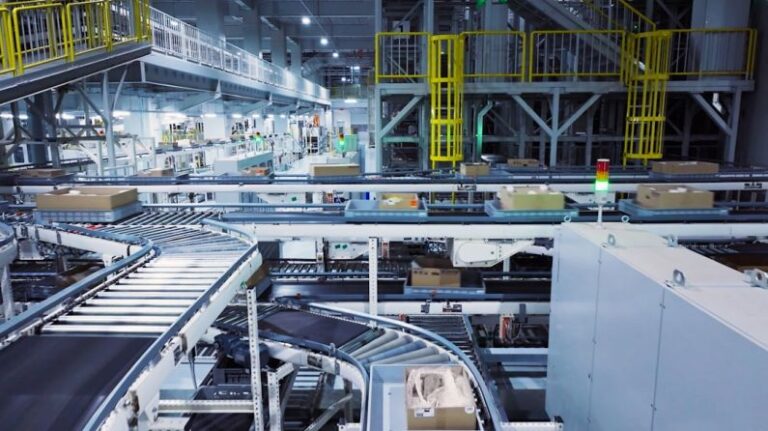Achieving Sustainability in Logistics
**Achieving Sustainability in Logistics**
In today’s rapidly evolving world, the concept of sustainability has become a top priority for businesses across all industries. When it comes to logistics, the need for sustainable practices is more crucial than ever before. The logistics sector plays a significant role in the global economy, but it also has a substantial impact on the environment. From transportation to warehousing, every aspect of logistics has the potential to either harm or help the planet. Therefore, achieving sustainability in logistics is not just a choice but a necessity for the future of our planet.
**The Importance of Sustainable Logistics**
Sustainable logistics is not just about reducing the environmental impact of operations; it is also about creating a more efficient and cost-effective supply chain. By implementing sustainable practices, companies can reduce waste, lower costs, and improve their overall business performance. In addition, consumers are becoming increasingly aware of the environmental impact of the products they purchase, leading to a growing demand for sustainable logistics solutions. Companies that fail to prioritize sustainability in their logistics operations risk losing customers and falling behind their competitors.
**Reducing Carbon Footprint**
One of the most critical aspects of achieving sustainability in logistics is reducing the carbon footprint of transportation. The transportation sector is one of the largest contributors to greenhouse gas emissions, making it a key target for sustainability efforts. Companies can reduce their carbon footprint by optimizing transportation routes, using eco-friendly vehicles, and implementing alternative modes of transport such as rail or sea freight. By reducing emissions from transportation, companies can not only minimize their impact on the environment but also lower costs and improve efficiency.
**Optimizing Warehousing Operations**
Warehousing operations also play a significant role in achieving sustainability in logistics. By optimizing warehouse layout and storage practices, companies can reduce waste, improve inventory management, and lower energy consumption. Implementing technologies such as automated storage systems and energy-efficient lighting can help companies achieve these goals. In addition, companies can reduce waste by implementing recycling programs and using sustainable packaging materials. By optimizing warehousing operations, companies can minimize their environmental impact and create a more sustainable supply chain.
**Collaborating with Suppliers and Partners**
Achieving sustainability in logistics is not something that companies can do alone. Collaboration with suppliers and partners is essential to create a sustainable supply chain. By working closely with suppliers, companies can ensure that sustainability is a priority throughout the entire supply chain. This includes sourcing materials responsibly, reducing waste in production processes, and promoting ethical labor practices. Companies can also collaborate with logistics partners to optimize transportation routes, reduce empty miles, and improve overall efficiency. By working together, companies can create a more sustainable supply chain that benefits both the environment and the bottom line.
**Embracing Technology and Innovation**
Technology and innovation play a crucial role in achieving sustainability in logistics. From advanced analytics to Internet of Things (IoT) devices, companies can leverage technology to optimize operations, reduce waste, and lower costs. For example, real-time tracking and monitoring systems can help companies optimize transportation routes and reduce fuel consumption. Autonomous vehicles and drones can revolutionize last-mile delivery, making it more efficient and environmentally friendly. By embracing technology and innovation, companies can stay ahead of the curve and create a more sustainable logistics operation.
**In Conclusion: Building a Sustainable Future**
In conclusion, achieving sustainability in logistics is a complex but necessary goal for companies looking to thrive in the modern business landscape. By focusing on reducing carbon footprint, optimizing warehousing operations, collaborating with suppliers and partners, and embracing technology and innovation, companies can create a more sustainable supply chain that benefits both the environment and their bottom line. Sustainability is not just a trend; it is a fundamental shift in how businesses operate. By prioritizing sustainability in logistics, companies can build a more resilient and prosperous future for themselves and the planet.






